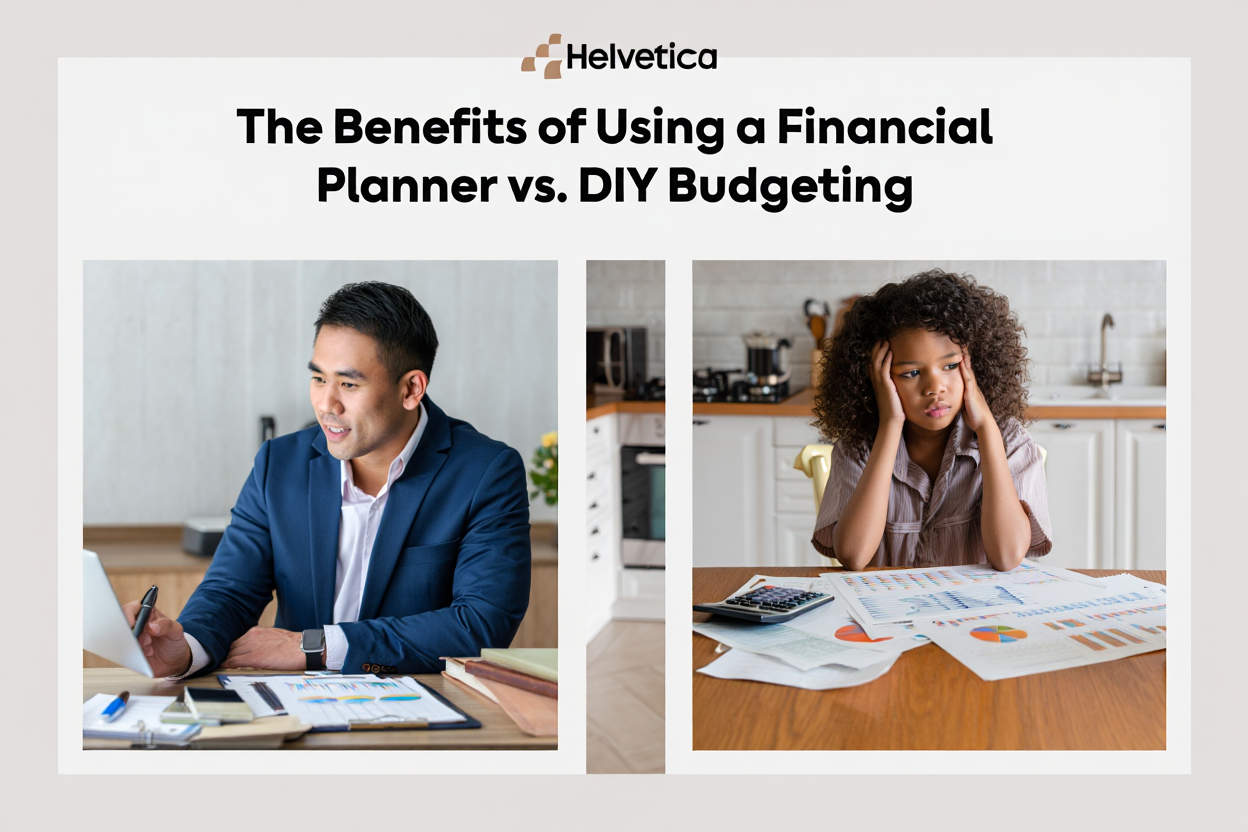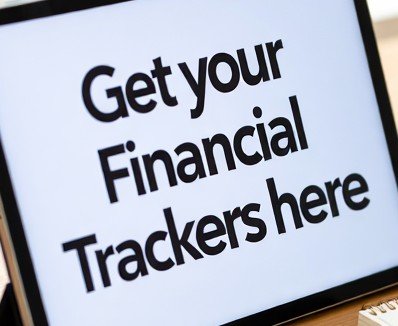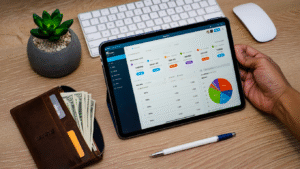
Managing your finances is one of the most important skills for building a secure future. But when it comes to budgeting, investing, and planning, should you go it alone or hire a professional?
In this guide, we dive deep into the benefits of DIY budgeting versus working with a financial planner—so you can decide the best money management path for your unique goals.
1. What Is DIY Budgeting?
DIY (Do-It-Yourself) budgeting means managing your money independently. Whether you use a simple spreadsheet, a budgeting app like YNAB or Mint, or even pen and paper, you are the one creating, tracking, and adjusting your financial plan.
Key Elements of DIY Budgeting:
- Tracking all income sources
- Categorizing and monitoring expenses
- Setting savings goals
- Adjusting spending habits month to month
- Handling debt repayment strategies independently
2. Top Benefits of DIY Budgeting
🧩 1. Full Control Over Your Finances
Every decision is yours—from how much you allocate to dining out, to how aggressively you save for retirement. DIY budgeting gives you 100% ownership over your money strategy.
💸 2. Cost-Effective and Budget-Friendly
Many budgeting tools are free or low-cost. Apps like Mint offer free services, and creating a custom spreadsheet costs nothing but your time.
🧐 3. Increased Awareness of Spending Habits
When you log every transaction manually, you naturally become more mindful of where your money goes. This awareness often leads to better financial decisions over time.
🛠️ 4. Highly Flexible and Customizable
You can build your budget around your lifestyle, values, and goals. Want to prioritize travel or start a small side business? You have the flexibility to shift priorities whenever you want.
3. Potential Challenges of DIY Budgeting
While DIY budgeting offers many advantages, it’s not without hurdles:
- Requires discipline and consistency
- Can feel overwhelming if your financial situation is complex
- Lack of professional guidance can lead to missed opportunities or costly mistakes
- No built-in accountability partner
DIY budgeting works best for those who are:
- Organized
- Detail-oriented
- Comfortable learning financial basics independently
4. What Is a Financial Planner?
A financial planner is a trained professional who offers expert advice on budgeting, saving, investing, tax strategies, debt management, retirement planning, and more.
They help you create a comprehensive financial plan customized to your life goals—whether that’s early retirement, buying a home, or building generational wealth.
Types of Financial Planners:
- Fee-Only Planners: Charge a flat rate or hourly fee; no commissions.
- Commission-Based Planners: Earn money by selling financial products.
- Fiduciary Planners: Legally required to act in your best financial interest.
5. Top Benefits of Using a Financial Planner
🎓 1. Expert Knowledge and Strategy
Financial planners bring years of education, certification, and experience to the table. They can help you optimize your financial plan and avoid common mistakes.
🧠 2. Holistic, Big-Picture Financial Planning
A planner looks beyond your monthly budget. They help design strategies for:
- Retirement savings
- Tax minimization
- Insurance needs
- Estate planning
- College funding for children
- Business succession planning (if you’re a business owner)
🤝 3. Accountability and Ongoing Support
Regular check-ins with a planner help keep you on track toward your goals. They adjust your plan as your life circumstances change—like a new job, marriage, or children.
🧘 4. Reduced Stress and Greater Peace of Mind
Having a financial expert guiding your decisions can alleviate financial anxiety. You’ll feel more confident knowing your money is working as hard for you as possible.
6. Potential Challenges of Hiring a Financial Planner
Working with a planner isn’t the best fit for everyone:
- Cost can be a barrier (hourly fees, flat rates, or percentage of assets managed)
- Finding the right planner can take time
- Risk of conflicts of interest with commission-based planners
- Less immediate control compared to DIY budgeting
Financial planners are ideal for those who:
- Have complex financial situations
- Are preparing for major life events (e.g., home buying, retirement)
- Want professional, tailored advice
7. Quick Comparison: DIY Budgeting vs. Financial Planner
| Feature | DIY Budgeting | Financial Planner |
|---|---|---|
| Cost | Low or free | Varies (hourly, flat fee, or percentage) |
| Customization | Fully flexible | Expert-guided and strategic |
| Control | 100% in your hands | Shared with a professional |
| Time Investment | Moderate to high | Lower for you, handled by planner |
| Scope | Focused mainly on budgeting | Comprehensive financial planning |
| Best For | Hands-on, motivated individuals | Complex finances or major goals |
8. How to Decide: DIY or Hire a Financial Planner?
Ask yourself:
- ✅ Do I enjoy managing my own money and learning about personal finance?
- ✅ Are my finances straightforward (e.g., one income source, few debts)?
- ✅ Do I have time to build and maintain my financial plan?
- ✅ Am I confident in making long-term financial decisions?
If you answered yes to most of these, DIY budgeting could work well for you.
However, if you:
- Feel overwhelmed by financial decisions
- Have multiple goals (e.g., saving for retirement, college, buying a house)
- Need help optimizing investments or taxes
- Want expert strategies to grow wealth faster
Then working with a financial planner could be one of the best investments you ever make.
9. Pro Tip: Hybrid Approach = Best of Both Worlds
Many successful individuals use a hybrid strategy:
They budget monthly using DIY tools while consulting a financial planner annually or during major life changes.
This approach combines the cost-effectiveness of DIY budgeting with the expert insight of professional financial advice—without fully outsourcing your financial life.
10. Final Thoughts: Take Control of Your Financial Future
Whether you choose DIY budgeting or partner with a financial planner, the most important thing is to take action.
- Engage with your finances regularly
- Set clear goals
- Adjust your strategy as your life changes
- Seek help when needed
Your financial future is built by the choices you make today.
Empower yourself—whether by mastering your own budget or bringing in expert support—and create a life you’re excited about.
🌟 Start where you are. Use what you have. Do what you can. Your future self will thank you. 🌟


